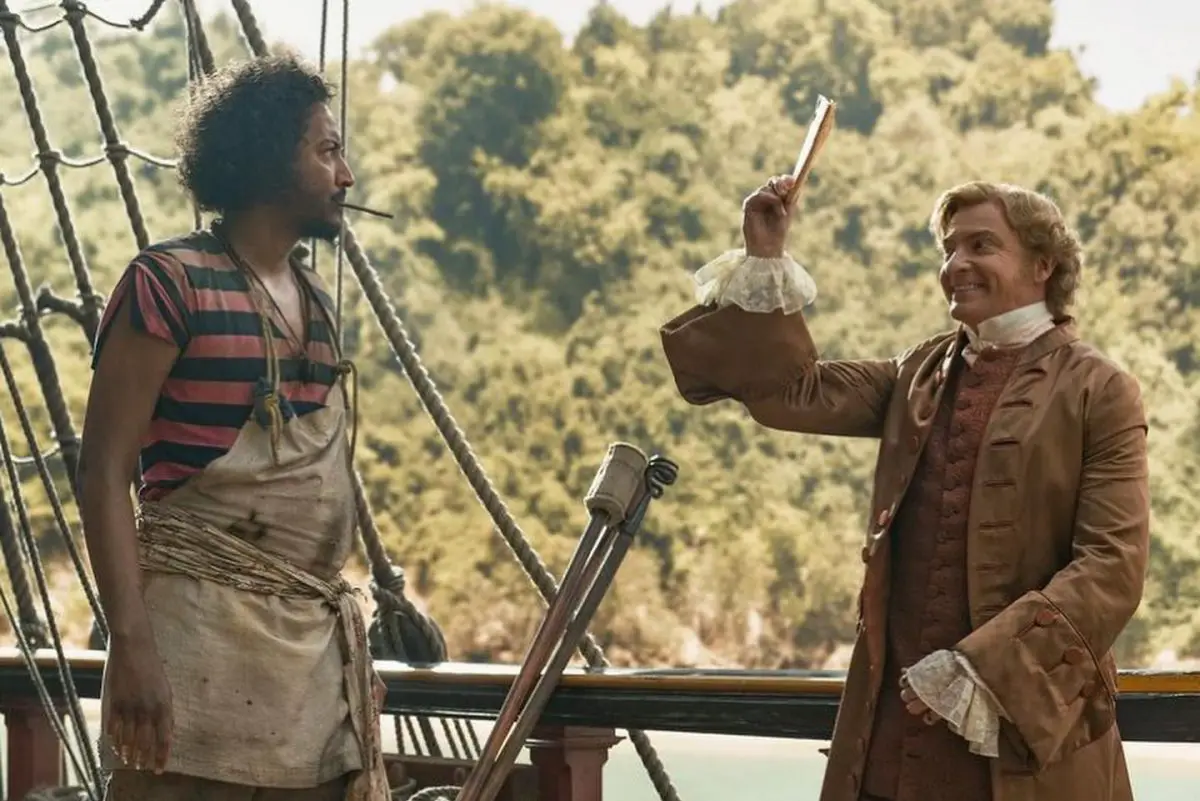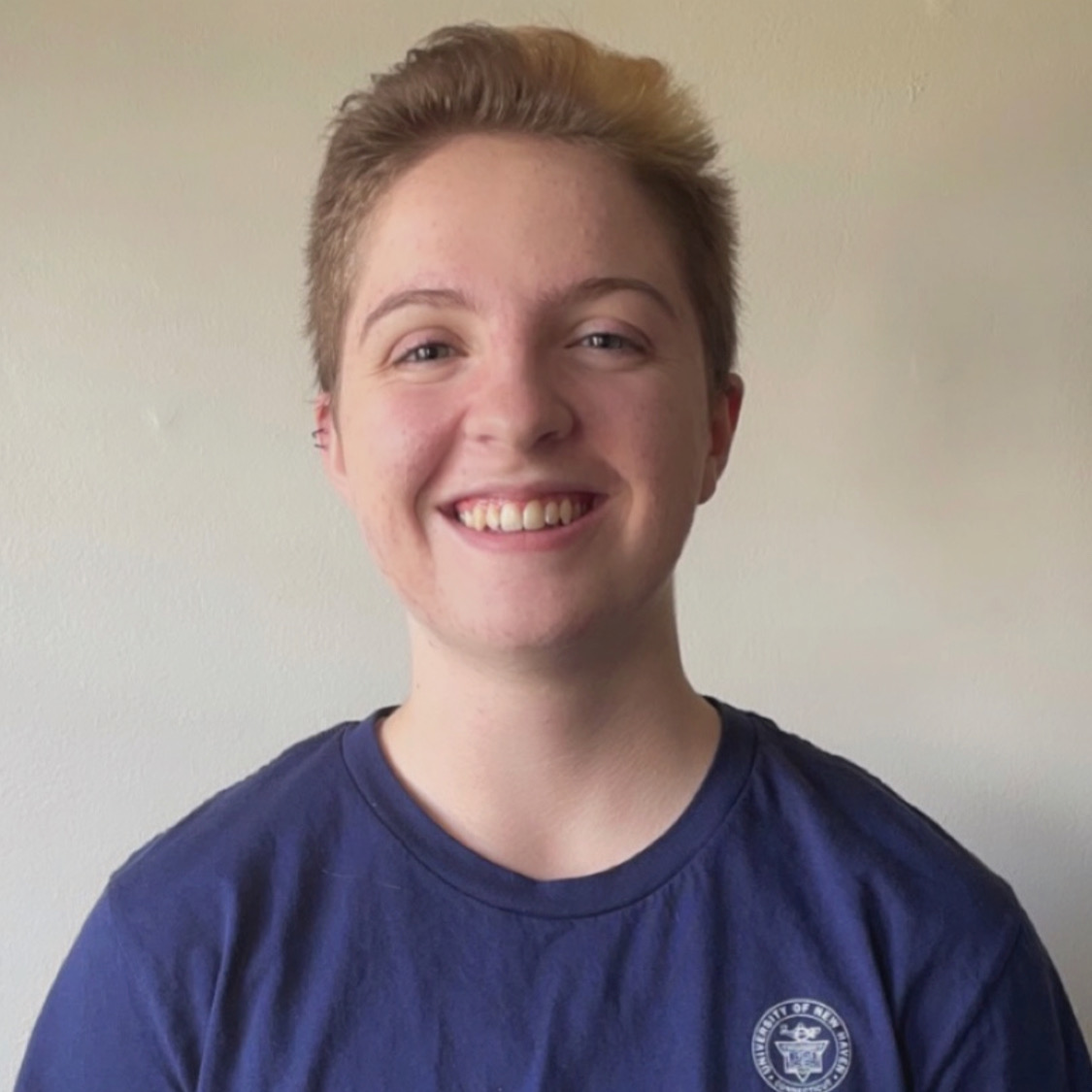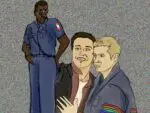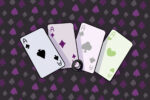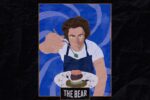In the wake of the ending to “Game of Thrones” and mid-season breaks from “Euphoria,” HBO Max is waiting around for the next big television series to grow its cult-like following. As always, Taika Waititi is here to deliver — this time through his new historical romantic comedy, “Our Flag Means Death.” Created by his partner-in-crime David Jenkins, this odd show follows the life of Stede Bonnet, played by Rhys Darby, and is based on a real pirate during the Golden Age of Piracy that left his wealth behind to seek out adventure on the high seas. This midlife crisis brings him in contact with a whole cast of colorful characters, including the notorious pirate Blackbeard, played by Taika Waititi himself.
On the surface, this show is doing a lot of things differently. Right off the bat, it’s a strange setting for a workplace romantic comedy, as many don’t associate Blackbeard with meet-cute storylines and jokes about pyramid schemes. Most of the cast is made up of Kiwi comedy actors and some lesser-known names, but every cast member has undeniable chemistry with each other on-screen. Some of the jokes wouldn’t land half as well if the two main characters weren’t played by the kings of Kiwi comedy, Darby and Waititi.
Most revolutionary of all, though, is the presence of several queer romantic subplots. The main romance in the show is between Bonnet and Blackbeard themselves, blowing previous queer representation out of the water with an on-screen kiss in Episode 9. Very rarely do television shows, especially those within the historical and adventure genres, involve queer romance at the forefront of the story. Seeing two middle-aged men explicitly and unapologetically in love within a setting like this was mind-blowing to queer fans, and a monumental step forward for queer media.
Beyond the main couple, there are a variety of different identities present in the story’s periphery. Half of the crew on Bonnet’s ship, The Revenge, are people of color, and quite a few of them bear queer identities as well. Lucius, played by Nathan Foad, is established as gay early on in the show, and though his character is thoroughly immersed in the comedy of the series, it’s not his sexuality that’s played for laughs. He has a genuine relationship with another member of the crew, Black Pete, and also shares a few scenes of on-screen intimacy with him.
There is also a member of the crew that is explicitly nonbinary: Jim, played by Puerto Rican nonbinary actor Vico Ortiz. Though they were originally introduced as a male character, they reveal to the crew that they were born female, but don’t identify in either direction, just as “Jim.” The rest of the characters, though originally joking around with the concept, eventually come around to accepting their identity and use exclusively they/them pronouns for them. Jim even enters a relationship with another member of the crew, Oluwande, bringing up the number of on-screen queer kisses to three. Including transgender and gender-nonconforming characters is nearly unheard of in television, especially in historical fiction, since many people believe these identities didn’t exist at the time. It’s incredibly refreshing to see alternative gender identities embraced with so much depth and respect, expressing the truth of the matter: Transgender people and people who don’t fit neatly within the gender binary have always existed.
So often does representation like this, though written with good intentions, fall flat for queer audiences. Most writers turn to recycled plots involving death and homophobia when including gay characters in their stories, and these subplots are usually relegated to the background. One of the more popular examples is Kurt from “Glee,” a stereotypically effeminate soprano that most girls in the show use as an accessory. In these cases, their sexuality or gender identity is barely touched upon, or conversely, made the whole of their personality.
“Our Flag Means Death” strikes a healthy balance between a lot of these elements. There is drama in the story, but it’s not because the couples are subjected to tragedy or societal homophobia. Most characters are rather accepting of the progressive themes, in fact, and those that aren’t are usually immediately shut down. Upon learning that Stede is in love with Blackbeard, his wife Mary smiles and embraces him, accepting him as he is rather than making it a point of conflict. The drama is instead born from complex story beats, and though it can evoke some strong emotions from the audience, these emotions feel earned, not exploitative.
More often than not, show writers default to a manipulative tactic known as queerbaiting, where same-sex relationships are teased in promotional material to attract queer audiences, but then abandoned within the story to maintain the comfort of straight audiences. Popular examples of this include shows like “Supernatural” and “Voltron: Legendary Defender,” both of which lost loyal fan bases due to these empty promises. Jenkins actively fought against this in “Our Flag Means Death.” Queer representation in his story is explicit, complex and not played for views or ratings.
The writers knew there would be backlash, especially since the show portrays a popular historical figure as gay, something that wasn’t confirmed in historical tellings of Blackbeard. Jenkins expressed his lack of concern for this controversy, more focused on bringing long-awaited representation to an expansive audience. As Jenkins said on Twitter, “A lot of what we’re taught about being a man is wrong,” followed by an image of Blackbeard and Bonnet embracing. He wanted his representation to show that words like “masculinity” and “queerness” are not as cut and dry as the mainstream would have us think, and they deserve just as much attention and nuance as other narratives. “Our Flag Means Death” has several instances of male characters ugly-crying and being vulnerable with their emotions, displaying true expressions of fear without it being a part of a joke. That alone was enough to inspire audiences to reconsider their image of a rugged sailor, and feel inspired to be more open themselves.
“Our Flag Means Death” has made huge strides toward creating comprehensive representation, and hopefully has set a fantastic precedent for more shows of its kind. Even as it opens the door for more complex and well-written gay characters, what this show has achieved is truly unique. All 10 episodes of Season 1 are available on HBO Max but be warned of its masterful ability to tug on your heartstrings.


